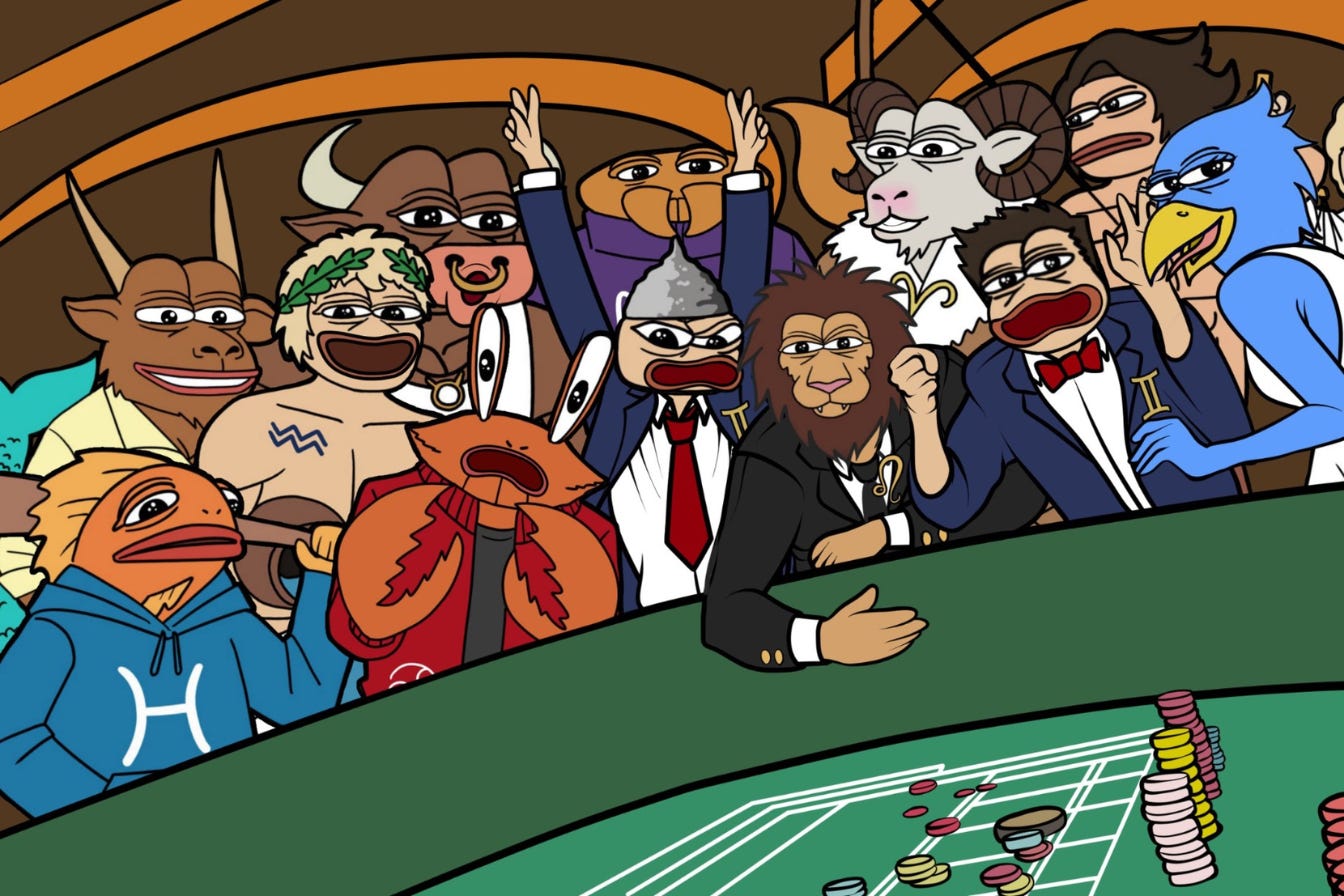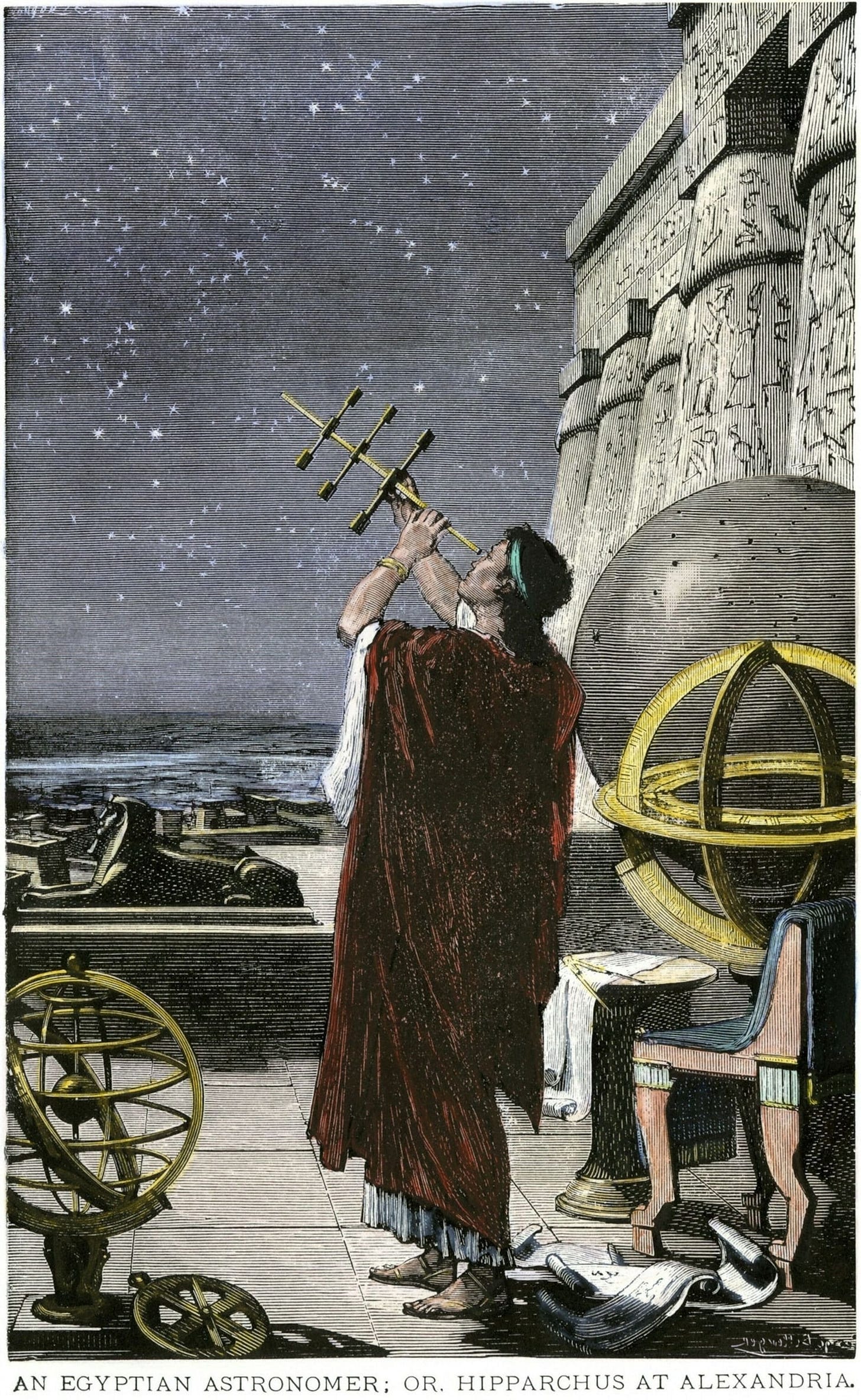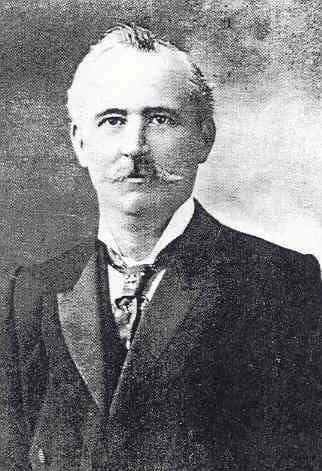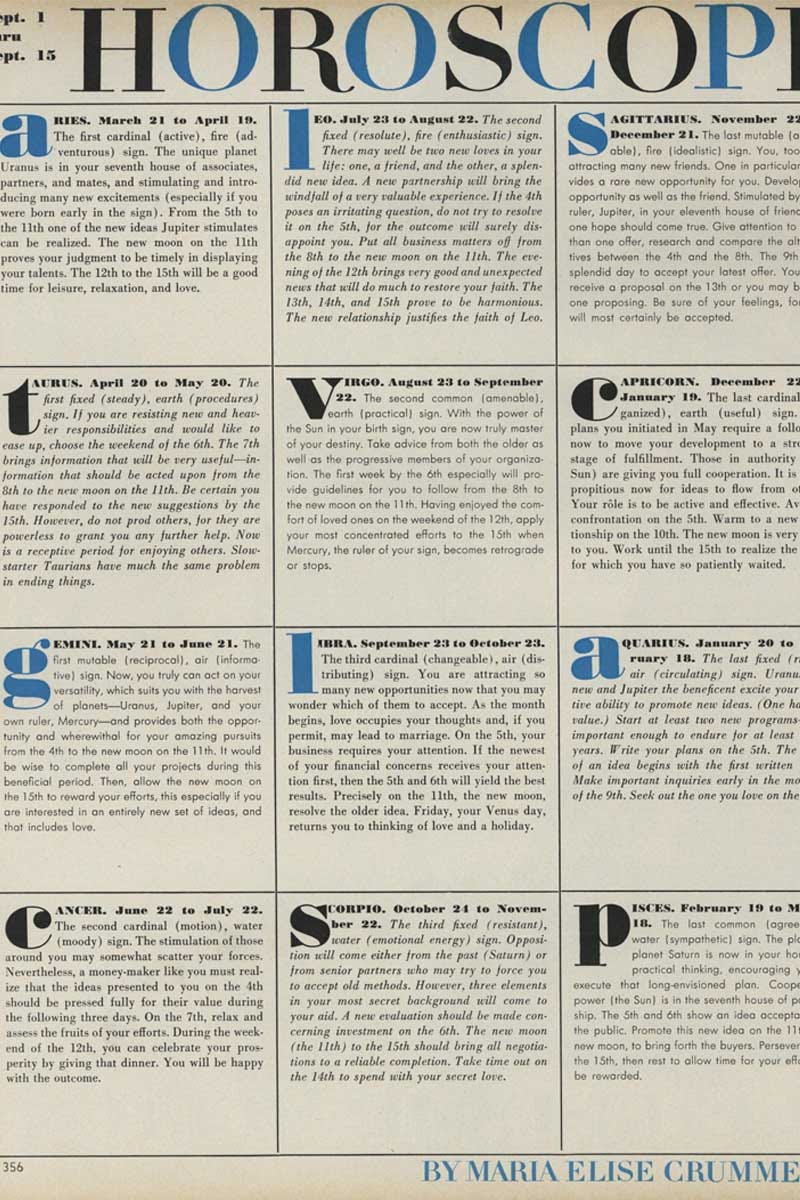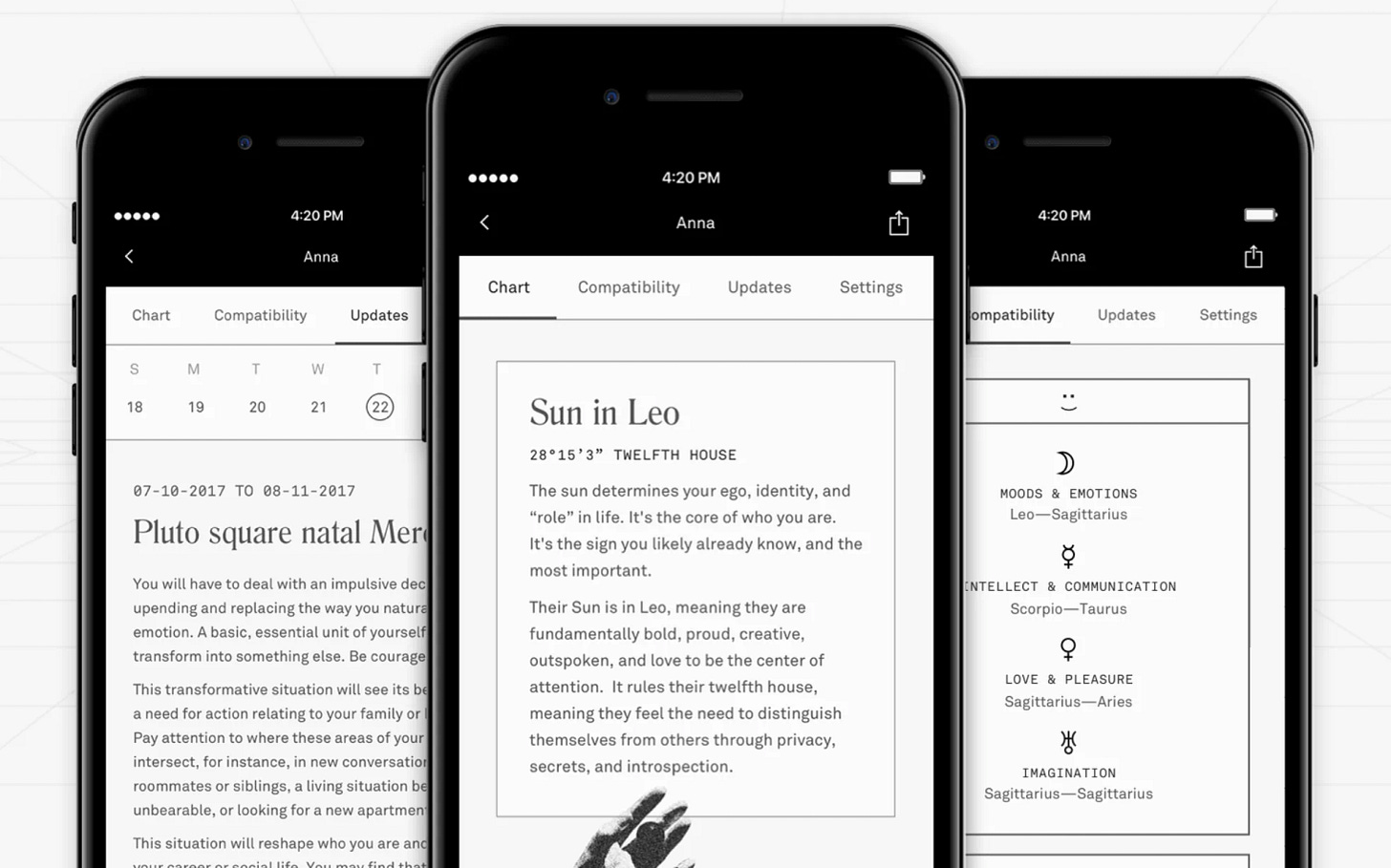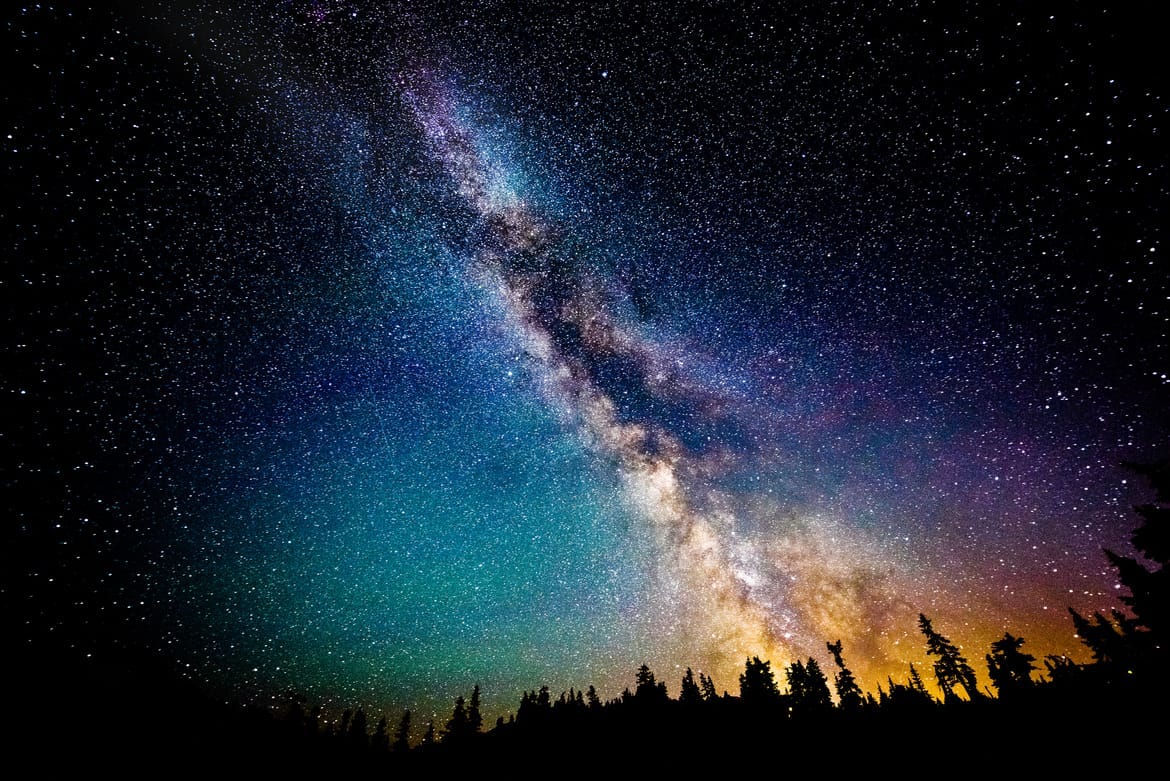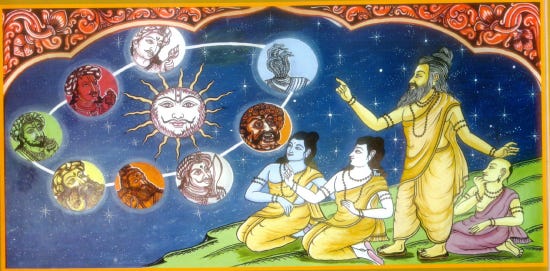Horoscopes to Hodl: Building Your Astrofolio
From Babylon to Bitcoin, astrology has woven itself into the fabric of society. Now, as astrology resurges in popularity, and cryptocurrency skyrockets, a new era is dawning–and Astrofolio is leading the way.
Planetary Correlations
Jupiter-Uranus: This transit has generally correlated with optimism around new ideas and technology. Bitcoin for instance, has always spiked during Jupiter-Uranus transits.
Uranus-Neptune: Like the Renaissance, Uranus-Neptune periods have a tendency to merge different fields, especially between science, art, and spirituality.
Uranus-Pluto: As the history of memes show, Uranus-Pluto transits coincide with empowering the masses through the rapid spread of information.
Imagine a language that doesn’t speak in words, but in the shimmering symbols of the cosmos. A language that's been whispered in the halls of emperors and the back rooms of Wall Street, scrawled on clay tablets and coded into cutting-edge apps. That language, of course, is astrology–the ancient art of divining meaning and predicting the future from the movements of the planets.
For millennia, humans have been enchanted by the idea that our fates are written in the stars, that the complex choreography of the universe holds the key to understanding ourselves and our world. From the deep foundations of ancient Babylon to the pop commentary of social media today, we've sought to crack the cosmic code, to unravel the mysteries of the astrological arcana.
But astrology is more than just a language–it's a living, evolving organism, a reflection of the cultures and consciousness of each era. As human society has grown and changed, so too has astrology, adapting to new technologies, new ways of thinking, and new paradigms of existence.
And now, in the early 21st century, astrology is undergoing perhaps its most surprising metamorphosis yet. As the world whirls with the dizzying pace of digital transformation, as cryptocurrencies and blockchain technologies upend our notions of value and exchange, astrology has found a new and strangely fitting niche.
Yes, you read that right: astrology and cryptocurrency, two of the most talked-about and least understood phenomena of our time, are converging in strange and marvelous ways. From astrology-themed crypto tokens to AI-generated horoscopes, the ancient wisdom of the planets is being reborn in the digital age.
But how did we get here? What's the connection between the cycles of the planets and the fluctuations of the markets? And what does this mysterious convergence say about the future of money, meaning, and maybe even the universe itself?
To answer these questions, we have to take a journey through time and space, from the dusty observatories of the Renaissance to the buzzing Discord channels of the crypto community. We have to examine astrology's many reinventions and renaissances, the visionaries and oddballs who've shaped its trajectory, and the technological and cultural shifts that have primed it for this moment.
So buckle up, dear reader, and get ready for a wild ride through the cosmic, the cryptic, and the utterly unexpected. Because the future of astrology–and maybe even the future of finance–just might be written in the stars, in the blockchain, and in the meme-ified dreams of a new generation of trailblazers.
Astrological (Re)Evolution
Astrology's journey through history is a tale of recurring rebirths and reinventions, with each new era of integration and innovation coinciding with the planetary alignments of Uranus-Neptune and Uranus-Pluto. These world transits, known for their tendencies toward spiritual awakening and technological transformation, have consistently marked turning points in astrology's evolution, setting the stage for the discipline to flourish and permeate the cultural zeitgeist.
The Renaissance: Astrology's Golden Age
In the late 15th century, as Europe emerged from the shadows of the Middle Ages, a new age of enlightenment and exploration dawned. The Renaissance, with its resurgence of classical learning and esoteric traditions, provided fertile ground for astrology to flourish. Leading thinkers like Marsilio Ficino, the famed Italian philosopher-priest, wove astrological symbolism into his neo-Platonic worldview, elevating the study of the stars to a sacred art.
As the Uranus-Neptune conjunction (0º) and Uranus-Pluto sextile (60º) alignments unfolded, Ficino's astrological musings found a receptive audience among the era's intellectual and artistic elite. Popes and princes, painters and poets–all sought guidance from the cosmic dance overhead. The birth of Gutenberg's printing press during this period further fueled the spread of ideas, making them accessible to a wider audience than ever before.
Turn of the Century: Birth of Modern Astrology
Fast forward to the early 1900s–the Uranus-Neptune and Uranus-Pluto oppositions (180º) heralded the birth of modern astrology. The discovery of the planets Uranus and Neptune had expanded the astrological vocabulary, while the rise of mass media provided new platforms for this cosmological wisdom to spread. Enter figures like Alan Leo, the British astrologer often hailed as the father of modern astrology. Leo's popular books and magazines brought the once-esoteric art to the masses, democratizing access to the cosmos.
Meanwhile, visionaries like W.D. Gann were pioneering new applications of astrology in the world of finance. Gann, a Wall Street legend, developed a system of trading based on planetary cycles and geometry. While his methods were controversial, Gann's work hinted at the tantalizing possibility of a hidden order in the markets, a financial cosmos governed by the same laws that guided human affairs.
At the same time, Carl Jung was delving deeper into esoteric traditions, including astrology, to develop his theory of archetypes and the collective unconscious. In 1954 during the Uranus-Neptune square (90º), Jung concretized his astrological insights with the publication of Synchronicity: An Acausal Connecting Principle in which he elaborated on the parallels between astrological events and psychological experiences.
The Age of Aquarius: Horoscopes for the Masses
The 1960s–a decade shaped by the transformative energy of the Uranus-Pluto conjunction and the subtle energy of the Uranus-Neptune sextile–witnessed astrology's explosive entry into mainstream culture. As the counterculture movement embraced alternative spirituality and consciousness-expanding practices, astrology found a new generation of devotees. Linda Goodman's Sun Signs, published in 1968, became a global sensation, introducing millions to the language of the zodiac. Horoscope columns became a staple of newspapers and magazines, cementing astrology's place in the popular imagination.
World Wide Web: Astrology on the Internet
The 1990s marked the dawn of the digital age, and with it, a new frontier for astrological expression. The Uranus-Neptune conjunction and Uranus-Pluto sextile (same alignment as the late 15th century) of this decade coincided with the rise of the internet, opening up unprecedented opportunities for astrologers to connect with audiences across the globe. Susan Miller emerged as one of the first astrology web celebrities, her website Astrology Zone becoming a go-to resource for in-depth horoscopes and astrological insights. This period laid the groundwork for astrology's 21st-century renaissance, as a new generation of tech-savvy stargazers came of age.
Digital Revolution: Astrology Apps
In the 2010s–during the major Uranus-Pluto square–as smartphones and social media reshaped the cultural landscape, astrology apps and online communities proliferated. Many of the innovators behind these platforms were themselves born under the most recent Uranus-Neptune alignment, embodying the fusion of spirituality and technology that defines our current astrological moment. From AI-powered horoscopes to synastry-based dating algorithms, astrology was suddenly ubiquitous, a guiding light for navigating the complexities of modern life.
A Re-Renaissance
Now, as the 2020s unfold, the stars are aligning once again for a new astrological renaissance. With Uranus and Neptune forming a sextile aspect and Uranus and Pluto in a harmonious trine (120º), the stage is set for astrology to not only maintain its cultural relevance but to evolve in startling and profound ways. In a strikingly ancient twist, astrology has now woven itself into the fabric of post-modern finance; into the world of cryptocurrency.
At first glance, astrology and cryptocurrency may seem like strange bedfellows, two realms light-years apart in both substance and spirit. But a closer look reveals a convergence that's been building for over a decade, a curious alignment of the planets and the markets that's now reaching a fever pitch. To truly understand this unlikely intersection, we must rewind the clock to the early 2010s, a time when both astrology and cryptocurrency were still on the fringes of mainstream consciousness. It was an era of rapid technological change and cultural upheaval, a moment ripe for new ideas and unconventional approaches to age-old questions.
It all started in 2013, when a cheeky cryptocurrency called Dogecoin was launched during the peak of the Uranus-Pluto square as well as the Jupiter-Uranus square transit, an alignment known for celebrating the trickster (especially when it comes to technology). Inspired by a viral internet meme featuring a Shiba Inu dog, Dogecoin quickly became a sensation, sparking a whole subculture of meme-based digital assets.
Despite its humorous origins, Dogecoin has proven remarkably resilient, outlasting many of the more serious cryptocurrencies that emerged in its wake. Its longevity can be attributed, in part, to the strong community that has grown up around it. Dogecoin enthusiasts, known for their playful and inclusive culture, have kept the currency alive through a combination of memes, charitable giving, and sheer enthusiasm.
Moreover, Dogecoin has benefited from the support of high-profile figures like Elon Musk, who has frequently tweeted about the currency, sparking surges in its value. This celebrity endorsement, combined with the currency's meme-able nature, has helped Dogecoin maintain its relevance in a rapidly evolving crypto landscape.
Enter Astrofolio: An Astrological Era for Meme Coins
Today, the astro-crypto convergence has reached new heights, as astrology takes center stage for a new meme coin project called Astrofolio. Amidst the cosmological interplay of the Jupiter-Uranus conjunction, Uranus-Neptune sextile, and Uranus-Pluto trine, Astrofolio emerges as a project that promises to merge the ancient symbols of the zodiac with the cutting-edge world of decentralized finance. By creating a whole ecosystem of Sun sign-themed tokens, Astrofolio offers a tantalizing glimpse of a future in which money, humor, community, and the movement of the heavens find each other.
In my quest to unravel the mysteries of the astrology-crypto convergence, I recently had the pleasure of interviewing one of the masterminds behind Astrofolio, a visionary who goes by the anonymous name of "wantonwallet." A seasoned explorer of the crypto realm since 2014, wanton has been navigating the volatile waters of this world for a decade now. But it was his fateful foray into the mystery school of astrology in 2017 that truly set him on the path to financial enlightenment.
"I think astrology is amazing," wanton says, as he describes the unfolding interplay between these two worlds, "I think that most people around the world do. Obviously having lived in Singapore, it's kind of funny...the dichotomy between East and West. It's just so generally acquiesced and accepted in the East and then in the West it's so acquiesced to rejecting it. It's kind of ingrained to instantly reject it. But that's going to change and we can all kind of see that. So as people start to move towards that, I think astrology coins should do very well; whether people want to identify with their sun sign or whether they just want to gamble on the particular energy of any particular season. I have firm belief that all of those strategies will be profitable. Not financial advice."
And while Astrofolio is tapping into a market that is not entirely astrologically-educated, wanton states that this project is just touching the surface of the cosmological worldview: "the depths to which you can go with astrology are beautifully endless. You can just choose to scratch the surface and say 'oh yeah, I'm a Capricorn, very logical and practical, and I like to be disciplined in this and that,' or you can go super deep and you could be saying 'I have Sun conjunct Uranus trine Venus, and that means that I have, eccentric qualities, but they're very much baked in a positive way often for financial gain...' and you go with it as deep as you want and it's really up to the individual what they want to do with that. But I have a feeling that essentially everyone will be scratching the surface in some way. I mean, we've already seen that; let's be honest. It's so obvious that people are engaging with astrology on a regular basis, in ways that no one could have been prepared for five, six years ago."
"We are in the age of Aquarius," wanton says, when asked about why this moment is ripe for the two fields (astrology and cryptocurrency) to merge, "Aquarius rules technological innovation, revolution, it rules upheaval, it's the water bearer. It's the water pouring out. It also rules the great flood; symbolically, the flood that destroys the Earth so that it can be reborn. So that's the energy of Aquarius, that's the energy we're in. And Aquarius also of course rules crypto. I've seen many astrologers have this take, I agree with that, because it rules technological revolution and very out of the box ideas. And almost all of what I'm saying about Aquarius, is coming straight from the book "The Only Astrology Book You'll Ever Need" by Joanna Martine Woolfolk. That book was written in 1982, way before any of the things today ever happened, but she totally predicted that basically we would be walking towards a society that resembles kind of a technocratic socialism which does seem to be where we're going. That's maybe the more evil side of Aquarius and that's something that we could get into, which is that there's also a pure Aquarius and dark Aquarius. Each one of the signs has a positive and a negative side."
Expanding further on this concept, waton continues: "One of the positive sides of Aquarius is using cryptocurrency to expand equal opportunity for commerce to everyone in the world. So a guy from Nigeria who wants to sell a service online to someone in Canada can do that using cryptocurrency and there's no middle man. He doesn't have to pay some kind of insane bank fee or tariff tax between the countries. There's no currency swap. So for instance if the Nigerian currency is really terrible, people get hosed on that again and again, and it reduces the economic opportunity of the person who's trying to provide the service. Cryptocurrency takes that away, it basically gives everyone the same opportunity to provide services. If you can pay and earn in cryptocurrency, there's not really any reason to not use the best person. So it's very good in that way and that's kind of the pure good side. But then on the dark side you do have essentially communism becoming more popular. It's very in line with the Age of Aquarius, people wanting total revolution and wanting a completely new system of government that basically makes everyone equal, maybe China for example. And that's maybe more the dark side and you just get to see it play out, but it's for sure that the Aquarius energy ties into cryptocurrency in a beautiful way and it's just very much on brand. So cryptocurrency is essentially, I would say, destined to succeed because of that, but it'll be very chaotic. Aquarius also rules chaos and overthrow. So whatever the new financial system is, it won't be particularly organized. We are basically leaving Capricorn, which is very organized and we're moving into Age of Aquarius, which is extreme disorder. And so even in the scope of the cryptocurrency space, I actually don't think there will be one, two, or even three winners. I think there will be many winners shifting over time because it was always meant to be very chaotic. It's not going to find a stable order. It will always be kind of shifting sands, unpredictable, and moving chaos. That's just part of the nature of the world we're in, in my opinion. So Age of Aquarius and crypto beautifully go hand in hand"
Don’t be offsides for the Age of Aquarius. Astrology is a mega-trend for this century. You have a chance to invest at cheap prices and ride the most investable astrology asset before the market at large catches on. https://t.co/7h57jV9GMW pic.twitter.com/mv973fa78p
— wantonwallet🐐♑️ (@wantonwallet) August 8, 2024
On the role of decentralization, wanton shares: "I'm super glad to be CEO or whatever here, but I wanted to be as close as possible to being CEO of a public company, where the CEO of the public company owns like 1% of the stock, and yes, he technically guides the ship but it's not like he owns the entire company. He's just kind of guiding it. The sooner we can get to that kind of organizational structure, the better it will be. And many companies have run on that model for literally a hundred years, so I think that will make the most sense. I think also kind of in line with the idea of Aquarian technology, is that power structures will take a more decentralized form or a more organic and vaguely socialist form where everyone's input is somewhat equally weighted. That's very Aquarian power structure and that would fit here. But yeah, I'm sure there will be drama and Chaos. I have no doubt about that."
He goes on to share about the astrology of their launch date and the challenges of navigating this world: "Frankly, the day that we launched these coins on, the Cancer New Moon...I almost cringed launching it on that. It's a very auspicious and bullish day in my opinion, but it's prone to extreme drama, just the Cancer New Moon energy is very prone to extreme drama and extreme reverberations of enthusiasm, joy, and also depression and sadness. So I'm sure we'll get plenty of both, but that was the time to do it. So it'll be a wild ride. But ultimately the fact that we're even still here after one month and two weeks...very few cryptocurrencies essentially last that long. Most of the meme coins do tend to rug within the first 48 hours, which is literally true. There was actually a copycat coin called "Zodiac Coin." They actually already rugged it and then they revived the coin after we started gaining steam, and then they rugged it again. But for me personally, I'll put it like just this, this is kind of my Capricorn talking, I don't need any of the money that comes from Astrofolio. I'm doing this as a passion project because I'm excited about how big it could be. And so if you have someone like that at the front you've covered 95% of the bases. The most dangerous thing that you can have is basically someone who's just constantly going to be looking for the exit."
Fellow HODLers of the Zodiac tokens Roundtable, we are united by the power of the blockchain and our commitment to decentralized finance. Each token, from $ARIES to $PISCES, symbolizes the strength and attributes of its astrological sign. Together, we form a strong and diverse… https://t.co/u70TsFOf13 pic.twitter.com/Do6Nu9geUS
— Astrofolio (@astrofoliosol) August 2, 2024
Born under the Uranus-Neptune conjunction and a Jupiter-Uranus trine in 1992, wanton embodies the very essence of the astrological resurgence that has characterized these planetary cycles throughout history. With the energy of innovation and spiritual awakening coursing through his veins, it's no wonder that Astrofolio has emerged as a project perfectly attuned to the zeitgeist, capturing the imagination of a generation hungry for new ways to navigate the intersection of finance and fate.
As the project rides the wave of the current Jupiter-Uranus conjunction, its unique blend of memes, astrology, and financial trading taps into a potent formula for growth and innovation. In its irreverent yet insightful approach, Astrofolio stands as a modern-day embodiment of the trickster archetype, a Promethean figure stealing the fire of astrological wisdom and delivering it to the masses in the form of dank memes. It's a project that not only reflects the spirit of the times but actively shapes it, blazing a trail for a new era of astrological awakening and financial empowerment.
Astrofolio is uniquely equipped to ride the transformative wave of the Uranus-Pluto trine (until 2032) because it's a revolution in every sense of the word. A grassroots uprising against the gatekeepers and power brokers of the past, and a bold assertion of the power of the collective imagination to shape our financial and cultural destiny. By harnessing the power of the internet's most potent cultural currency–the meme–and wedding it to the ancient wisdom of the cosmos, Astrofolio is also evoking the Uranus-Neptune sextile (until 2029) in its capacity to merge two vastly different fields into one cohesive project.
With a team of around 50 dedicated contributors (including folks like VirginLvl888) and a rapidly expanding community of over 800 members, Astrofolio is on a mission to shake up the crypto space with a potent blend of astrological insight and meme-fueled hilarity. By injecting the market with a steady stream of zodiac-themed characters, Astrofolio aims to not only help people pad their digital wallets but also to spark a newfound fascination with the ancient art of astrology. It's a clever approach–using humor and viral appeal to lure the crypto crowd into a deeper exploration of the cosmos and its influence on our earthly affairs.
An Innovative Mystery
As we've seen, astrology's journey through the centuries has been one of constant reinvention and resurgence. From the learned salons of the Renaissance to the digital agoras of the 21st century, the allure of the cosmic art has proven enduringly resilient, adapting to each new era while retaining its essential mystery and wonder.
Today, as we stand on the cusp of a new astrological age, the possibilities for innovation and exploration seem limitless. Whether you're a die-hard devotee of the daily horoscope or a crypto enthusiast charting your lunar financial cycles, there's no denying the power of astrology to capture our imaginations and shape our understanding of the world.
In the end, perhaps the real magic of astrology lies not in its predictive power, but in its ability to connect us–to each other, to the natural world, and to the vast cosmic mystery that unfolds all around us. As we navigate the uncharted waters of a rapidly changing world, the ancient wisdom of the stars offers a compass, a reminder that even in the face of uncertainty and upheaval, there is a pattern and a purpose to the universe.
So keep your eyes on the skies and your finger on the pulse of the ever-evolving world of astrology. Because one thing is for certain–the cosmological dance of astrology and culture is far from over, and the best is yet to come.
A Deeper Note
While the focus of this article has been on astrology's journey through Western history, it's important to recognize that this ancient art and science has been an integral part of many other cultures for centuries. In India, for example, astrology has been woven into the fabric of daily life for millennia, with many people consulting astrologers for guidance on everything from marriage and career to health and spirituality.
Indian astrology, or Jyotish, has a rich and unbroken tradition that dates back to ancient times. It is deeply intertwined with Hinduism and is considered a vital tool for understanding one's dharma, or life path. In contrast to the West, where astrology has often been marginalized or dismissed as superstition, in India it has remained a respected and widely practiced discipline. From the bustling streets of Mumbai to the holy city of Banares, astrologers continue to ply their trade, offering insights and guidance to those seeking to navigate the complexities of life.
So while this article has charted astrology's winding path through early Western culture, from the Renaissance to the age of crypto, it's crucial to remember that this is just one chapter in a much larger story. Astrology's roots run deep and wide, and its influence can be felt in countless cultures and traditions around the world. As we look to the future and ponder astrology's next evolution, it's humbling and inspiring to know that for billions of people, the stars have never ceased to be a source of wisdom, comfort, and cosmic wonder.




